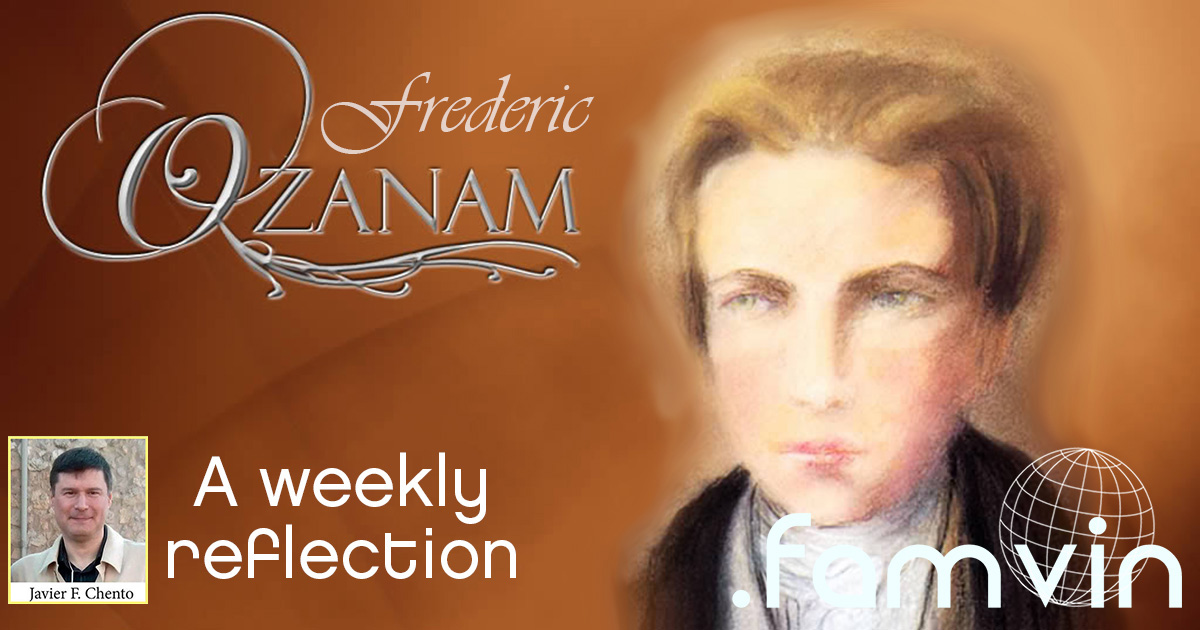[If so are now] the evils, not of a single district, but of several districts of Paris; not only in Paris but in Lyon, in Rouan, and in all the manufacturing cities of the North, […] imagine what winter will bring, when the hardness of the station suspends the little remains of the construction works, and throw to forty thousand unemployed more by the streets of the capital! Of course, we are not in the habit of echoing public alarms; but we can not forget these words of a Sister of Charity: “I am very afraid of death,” she said, “but I fear even more the next winter.” And we also fear it; and on the way down those ruined stairs, on every floor where we have seen so much suffering present, so many dangers for the future, we have not been able to retain our pain and have made the promise to warn our fellow citizens.

Frederic Ozanam, article «Aux gens de bien» [To good people], in L’Ère Nouvelle, nº 151, September 15, 1848.
Reflection:
- After Frederic’s extensive exposition on the situation of the poor in his article “To good people,” as we have been seeing throughout the last weeks, before beginning to question the different social classes, Ozanam raises that this situation, already very serious in itself, will worsen with the arrival of winter. Then dismissals will occur, when the production is stopped by the inclemency of weather.
- By knowing firsthand the sufferings and anguish of the poor, of the workers who hardly manage to survive, they and their families, with their meager salaries, Frederic makes two reflections:
- He joins the pain of so many helpless, making his own the words of a Sister of Charity, who is horrified by the situation that winter will bring.
- But in Frederic, this pain becomes a denounce: he does not shut up. He uses the means at his disposal (in this case, the newspaper), to denounce injustice and give voice to those who do not have it.
- The next step will be to question their fellow citizens, above all those who have in their hands the ability to transform society, to get down to work and do something. We will be seeing this from next week.
- Nowadays, information flows around us and impacts our lives with amazing speed. We live in an information age: the digital revolution that we have lived for relatively few years has brought us news and information about what is happening around the world, practically instantaneously. It is our obligation to properly use these means to denounce the injustices we see, as Ozanam did: he is teaching us that to serve the poor is also to advocate for them before the social classes, giving light to injustices, provoking systemic changes and challenge those who have the power to do so to change the situation of those who suffer. This is also to make the gospel effective and to live the Vincentian charism, today.
Questions for dialogue:
- Are we convinced that we should be the speaker in which the denunciation of the situation of the poor is heard?
- Do we give the poor the space and the means to make themselves the protagonists of this denunciation?
- How do we use the media to denounce injustices? Are they part of our itinerary as Vincentians?
Javier F. Chento
![]() @javierchento
@javierchento
![]() JavierChento
JavierChento






The Vincentian mission centers on empowering the poor, so let’s break this down:
Should we be the speaker?
Not necessarily. The poor should be the protagonists of their own stories.
Be an amplifier. Use your voice to elevate the voices of the poor, not drown them out.
Giving the Poor a Platform:
Empowerment. Work alongside the poor to understand their struggles and solutions.
Community building. Facilitate communication between the poor and those who can help.
Support. Offer resources and training for the poor to advocate for themselves.